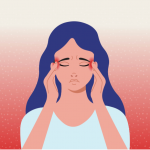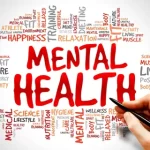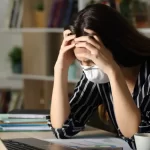After trauma exposure, it’s normal to experience some anxiety and stress. However, for those living with post-traumatic stress disorder (PTSD), anxiety levels can become debilitating without proper coping strategies. The constant fear, hypervigilance, and heightened startle response that comes with PTSD greatly impact the quality of life. Fortunately, making lifestyle adjustments and adopting healthy habits can help manage anxiety symptoms over time. Here are 7 research-backed ways to cope with PTSD anxiety.
Table of Contents
1. Practice Deep Breathing Exercises
When anxiety flares, breathing becomes shallow and rapid. Reversing this response through deep breathing tricks the body into relaxation mode. Schedule regular breathing sessions – inhaling slowly through your nose for 5 counts, holding for 5, then exhaling through pursed lips for 5. Deep belly breathing is especially calming. Focusing on your breath also distracts from anxious thoughts. Try the 4-7-8 method before bed or when stressed.
2. Get Daily Exercise
Physical activity releases feel-good endorphins and redirects attention away from symptoms. Aim for at least 30 minutes per day of your preferred exercise like walking, yoga, swimming, or strength training. Even light exertion helps burn off excess adrenaline and lower muscle tension. When anxiety hits, opt for an energizing indoor or outdoor session. Exercise is also a healthy distraction from intrusive memories or thoughts.
3. Develop A Relaxation Routine
Going to bed at the same time, reading before sleep, and avoiding screens before bed promotes quality rest, easing next-day anxiety. Try relaxation techniques like progressive muscle relaxation, meditation, deep breathing, meditation, or visualizations nightly. Developing a regular wind-down routine signals your body it’s time to relax, calming a stressed nervous system.
4. Manage Stress With Adaptable Thinking
Anxious, pessimistic thinking amplifies PTSD distress. Challenging these thoughts through cognitive behavioral therapy (CBT) techniques reduces their power. When fearful thoughts arise, dispute them with rational alternatives. Record evidence that anxiety is time-limited versus catastrophic, and view situations as challenging not threatening. Shifting a negative mindset into a more adaptable one minimizes anxiety triggered by harmless events.
5. Monitor And Adjust Medications
For some, prescription medication provides needed relief when coping tools alone don’t control symptoms. Work closely with your doctor or psychiatrist to find effective dosage levels of selective serotonin reuptake inhibitors (SSRIs) for depression and anxiety. If the current medication isn’t working, discuss ketamine for ptsd alternatives shown to help like prazosin or propranolol. Proper med management prevents reactions to trauma reminders or situations that cause panic.
6. Develop A Strong Support System
Isolation worsens PTSD anxiety and symptoms. Connecting with loved ones and not pulling away during distress prevents loneliness and the perception that you’re going through trauma effects alone. Consider joining a local support group as well to share experiences with others and give as well as receive support. Cultivating close relationships boosts resilience and gives a healthy outlet for working through trauma memories.
7. Try Alternative Therapies
Many alternative techniques show promise for easing PTSD symptoms when used alongside traditional treatments. Acupuncture, massage therapy, EMDR therapy, and biofeedback retrain the body and mind’s stress response in a relaxing way. Nature therapy like hiking, gardening, or time at the beach also provides a burst of calm that counters persistent anxious feelings. Having an “outlet box” of calming activities tailored to your specific needs and interests ensures you have reliable coping strategies.
To Wrap Up
Developing a multi-pronged approach for combating PTSD distress through diet, exercise, relaxation, therapy, medication management, and social bonds sets the stage for a more balanced lifestyle. While anxiety may never fully disappear post-trauma, these healthy daily coping habits evidence suggests can significantly reduce symptoms, and perceptions of control over anxiety and improve overall quality of life. Persistence and patience are key to overcoming the perplexing effects of trauma on the mind and body through sound coping options. Before long, the burst of calm grows more constant.







